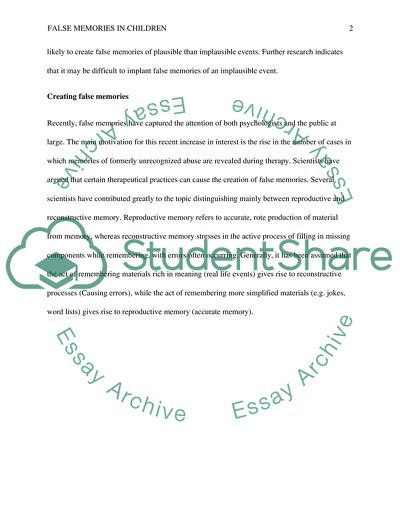False Memories in Children Essay Example | Topics and Well Written Essays - 250 words. Retrieved from https://studentshare.org/psychology/1701921-false-memories-in-children
False Memories in Children Essay Example | Topics and Well Written Essays - 250 Words. https://studentshare.org/psychology/1701921-false-memories-in-children.


